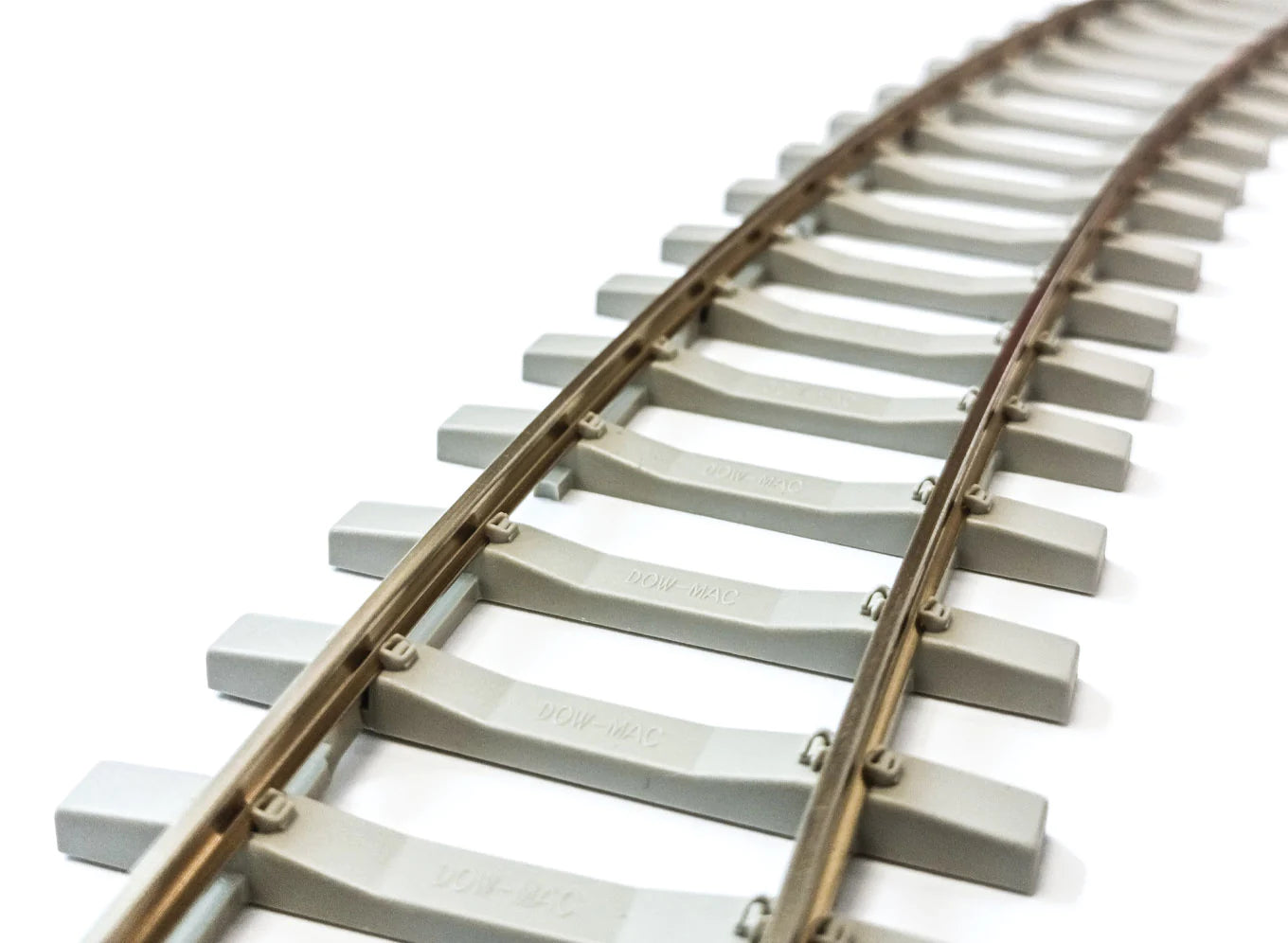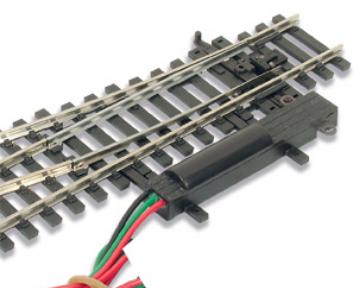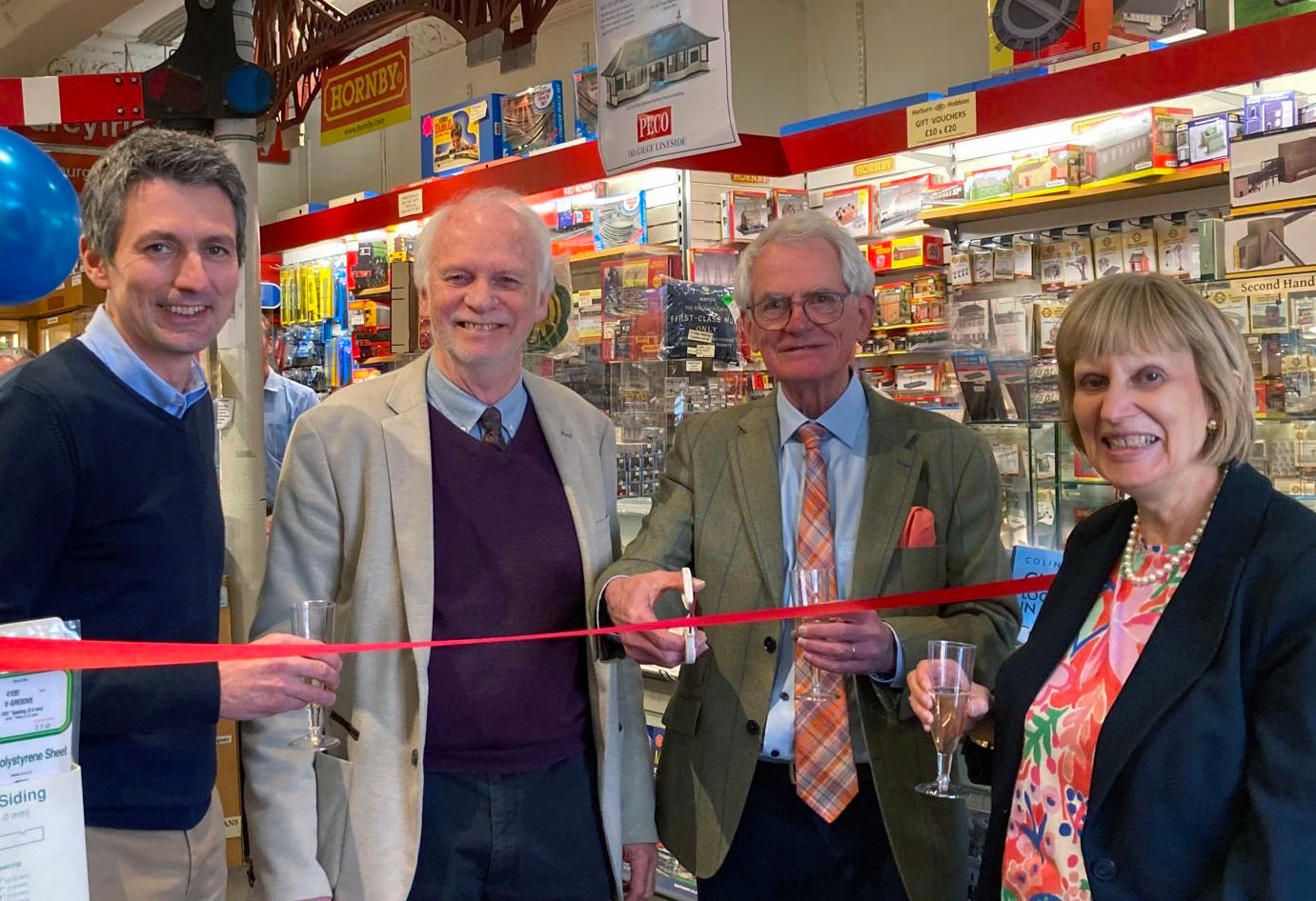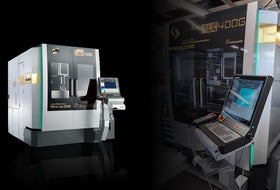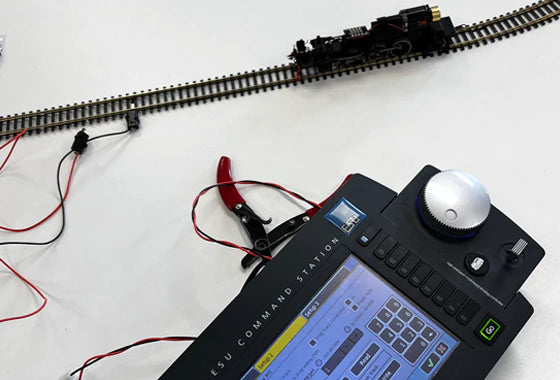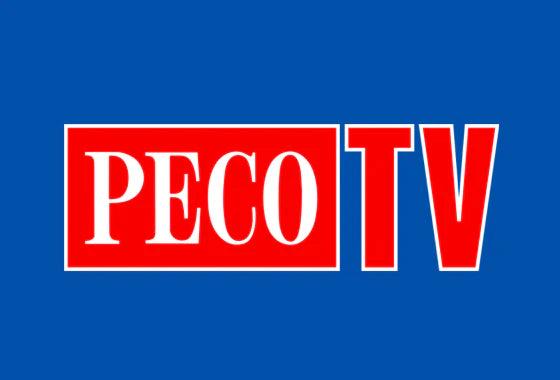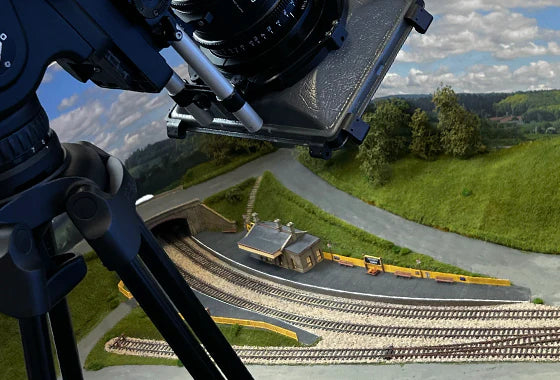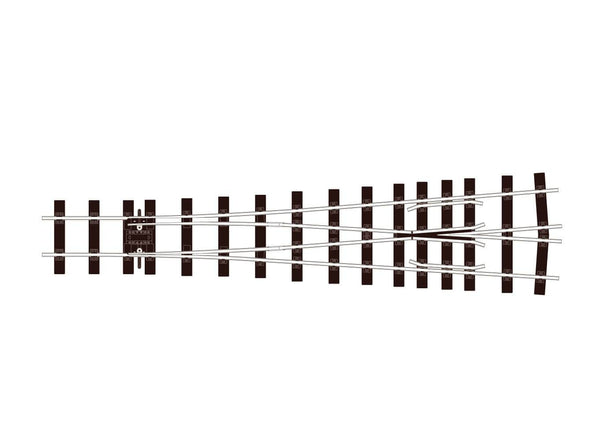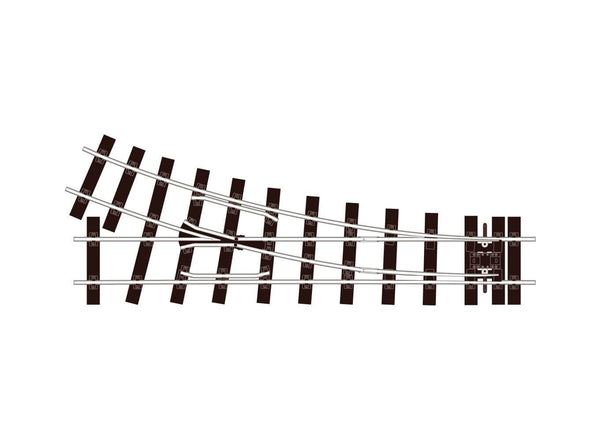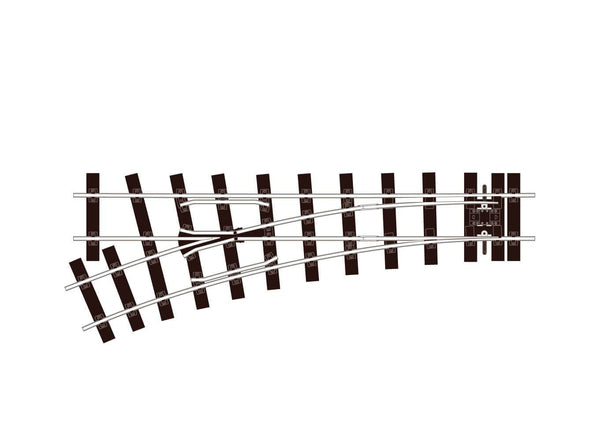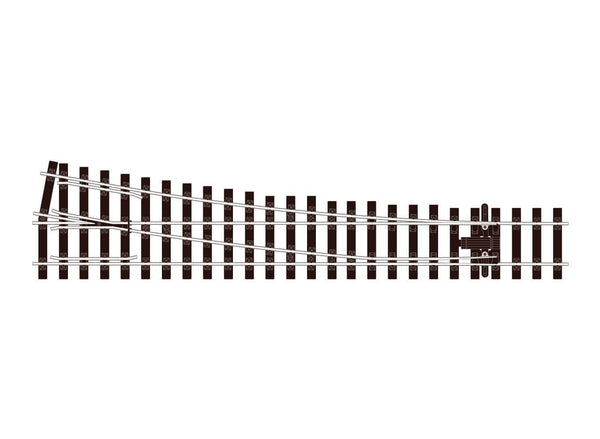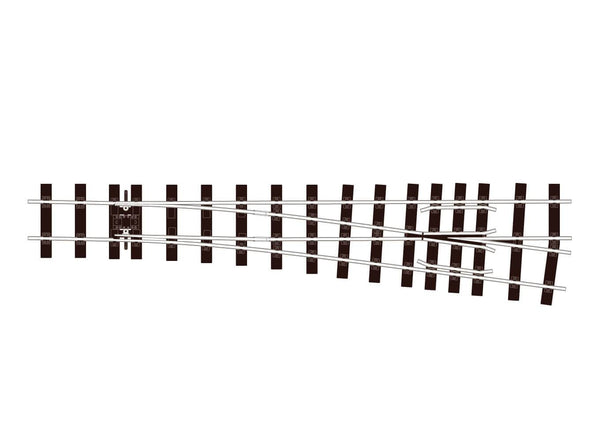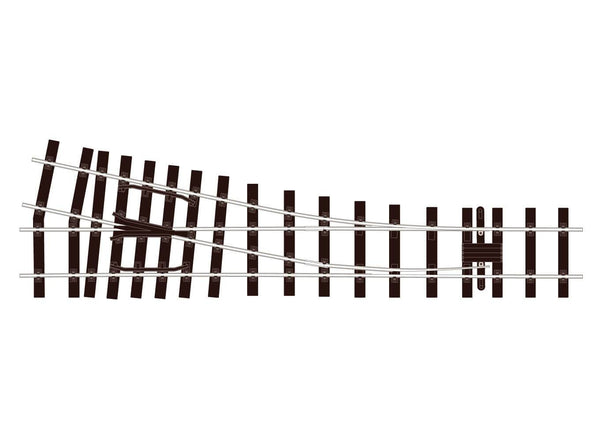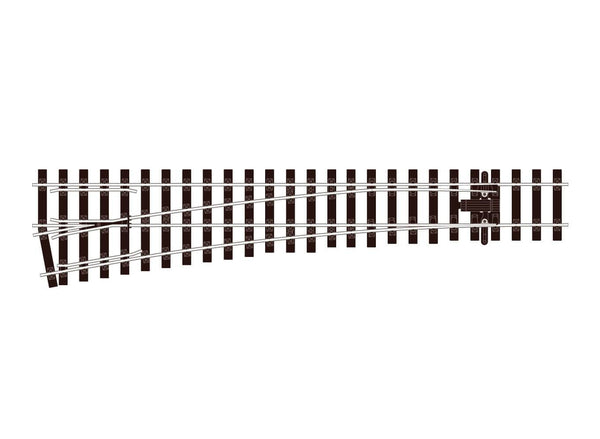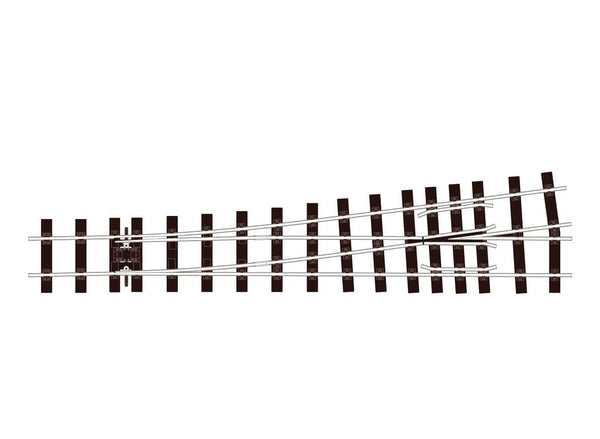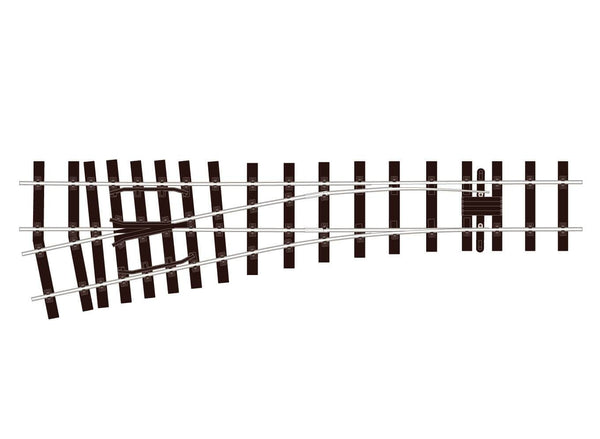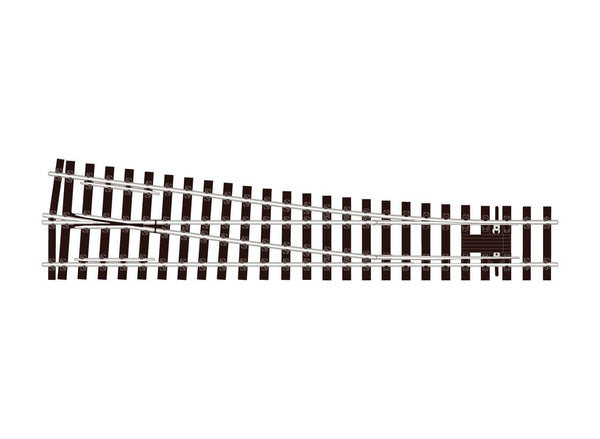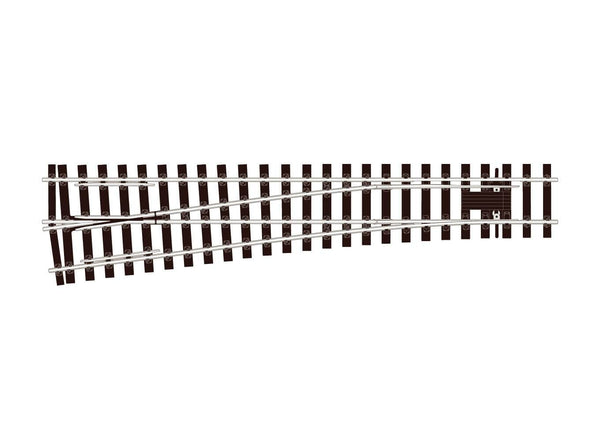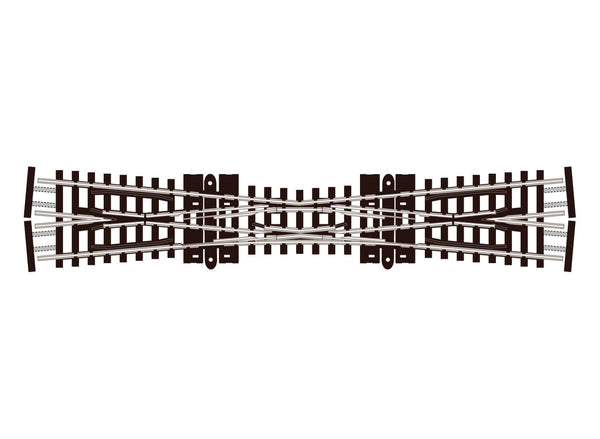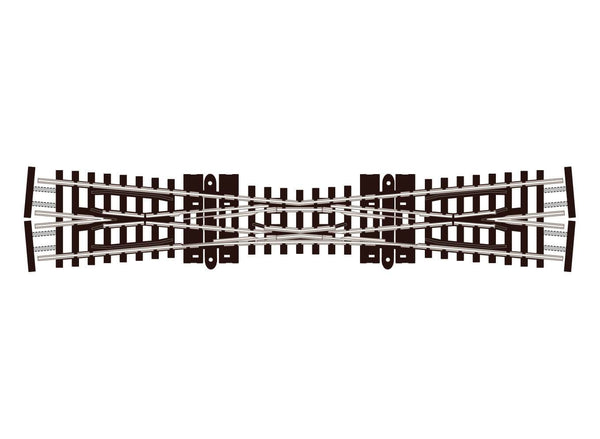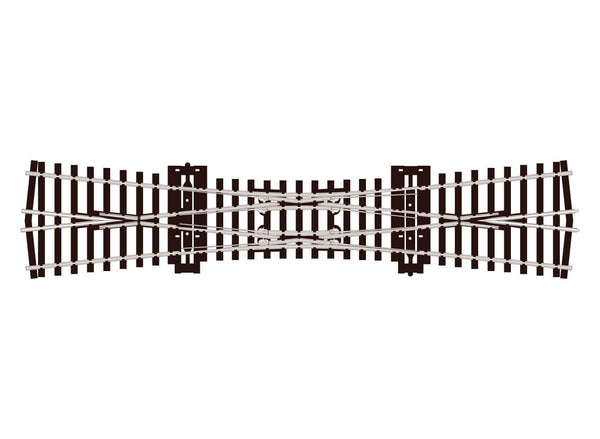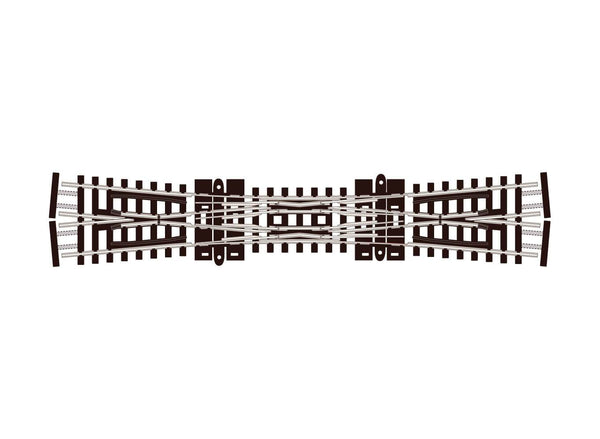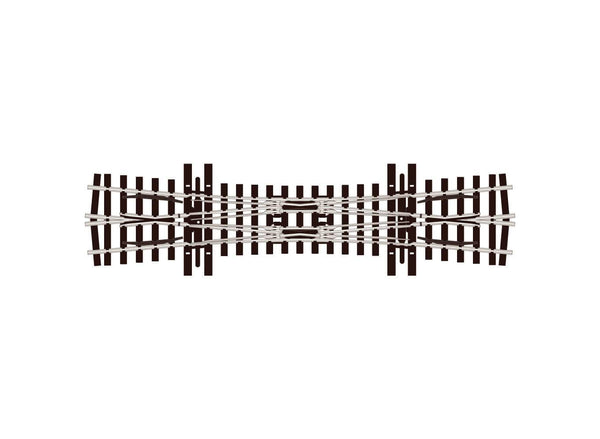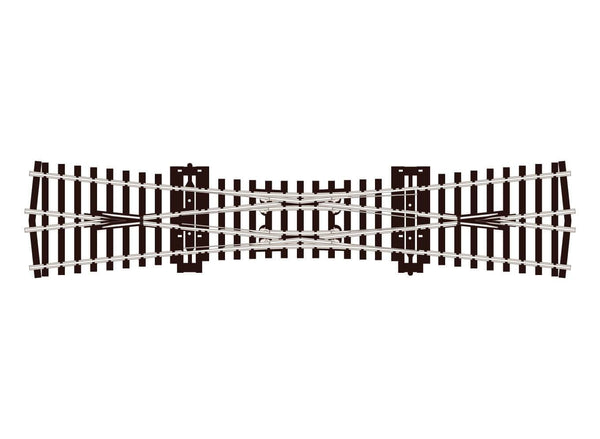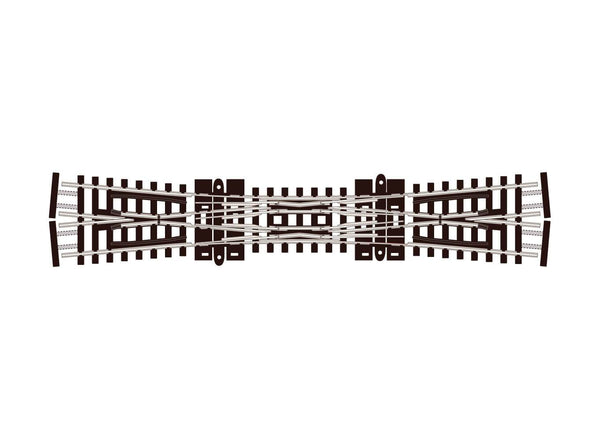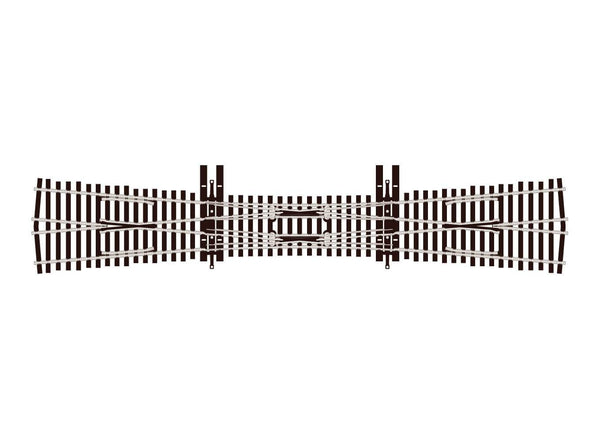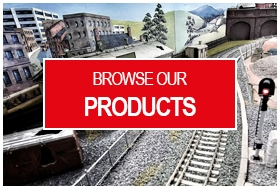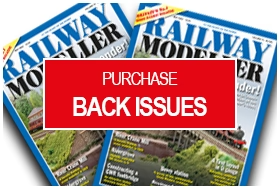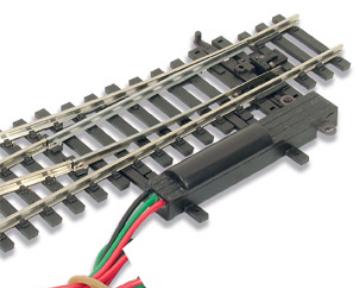BROWSE PECO PRODUCTS
Browse through our complete product portfolio.
33 Products Found
Y Turnout, Medium Radius
A popular size especially in the garden, SM-32 models are built to a scale of 16mm/foot and run on a gauge of 32mm, the equivalent of a two foot gauge railway. SM-32 has become the first choice for many narrow gauge enthusiasts who want to operate live steam locomotives by radio control, the large size of the locomotives means plenty of room for the receiver and control servos. The SM-32 Streamline track system is compatible with the SM-32 Setrack system.
Turnout, Small Radius, Right Hand
A popular size especially in the garden, SM-32 models are built to a scale of 16mm/foot and run on a gauge of 32mm, the equivalent of a two foot gauge railway. SM-32 has become the first choice for many narrow gauge enthusiasts who want to operate live steam locomotives by radio control, the large size of the locomotives means plenty of room for the receiver and control servos. The SM-32 Streamline track system is compatible with the SM-32 Setrack system; the ST-607 Setrack curve is designed to match this turnout in order to create parallel sidings, run round loops etc.
Turnout, Small Radius, Left Hand
A popular size especially in the garden, SM-32 models are built to a scale of 16mm/foot and run on a gauge of 32mm, the equivalent of a two foot gauge railway. SM-32 has become the first choice for many narrow gauge enthusiasts who want to operate live steam locomotives by radio control, the large size of the locomotives means plenty of room for the receiver and control servos. The SM-32 Streamline track system is compatible with the SM-32 Setrack system; the ST-607 Setrack curve is designed to match this turnout in order to create parallel sidings, run round loops etc.
Turnout, Medium Radius, Right Hand
Gauge One models are built to a scale of 10mm/foot, or approx 1:30 scale. This is a great scale for live steam locomotives, or electric and internal combustion models. This scale is often used in the great outdoors, however, indoor scenic layouts are not unknown.
Turnout, Medium Radius, Right Hand
A popular size especially in the garden, SM-32 models are built to a scale of 16mm/foot and run on a gauge of 32mm, the equivalent of a two foot gauge railway. SM-32 has become the first choice for many narrow gauge enthusiasts who want to operate live steam locomotives by radio control, the large size of the locomotives means plenty of room for the receiver and control servos. The SM-32 Streamline track system is compatible with the SM-32 Setrack system.
Turnout, Medium Radius, Right Hand
For large scale narrow gauge models running on 45mm gauge track, it is designed for electrically powered models but is also entirely suitable for running radio controlled live steam trains. The robust construction makes it equally at home for use both indoors and outside. These turnouts are compatible with the G45 Setrack system.
Turnout, Medium Radius, Left Hand
Gauge One models are built to a scale of 10mm/foot, or approx 1:30 scale. This is a great scale for live steam locomotives, or electric and internal combustion models. This scale is often used in the great outdoors, however, indoor scenic layouts are not unknown.
Turnout, Medium Radius, Left Hand
A popular size especially in the garden, SM-32 models are built to a scale of 16mm/foot and run on a gauge of 32mm, the equivalent of a two foot gauge railway. SM-32 has become the first choice for many narrow gauge enthusiasts who want to operate live steam locomotives by radio control, the large size of the locomotives means plenty of room for the receiver and control servos. The SM-32 Streamline track system is compatible with the SM-32 Setrack system.
Turnout, Medium Radius, Left Hand
For large scale narrow gauge models running on 45mm gauge track, it is designed for electrically powered models but is also entirely suitable for running radio controlled live steam trains. The robust construction makes it equally at home for use both indoors and outside. These turnouts are compatible with the G45 Setrack system.
Scissors Crossing, Medium Radius
PECO Streamline N Gauge Code 55 - Universal Fine trackage system
Despite a low visible rail height of just 1.4mm, all brands of N Gauge model locomotives will run on this track.
The ingenious rail section of PECO 55 combines strength and durability with a highly realistic appearance and uses the same universal rail joiners as Code 80; the geometry of this range has been cleverly designed to make it easy to build convenient, complex and aesthetically pleasing formations. For more details on wiring this Scissors Crossover unit, see our Wiring the Layout publications No 21.
Flat Bottom O Gauge RH Turnout - Medium Radius
The geometry of these turnouts matches that of the Bullhead Streamline range making it easy to use both rail types together, as on the prototype. The SL-713 Transition Track is an ideal way to connect Flat Bottom track to the Bullhead Setrack and Streamline track systems.
Peco Streamline Flat Bottom 0 Gauge track is superbly detailed, with correct scale width 'wood grain' sleepers and integrally moulded baseplates with Pandrol (TM) type rail fixings.
Flat Bottom O Gauge LH Turnout - Medium Radius
The geometry of these turnouts matches that of the Bullhead Streamline range making it easy to use both rail types together, as on the prototype. The SL-713 Transition Track is an ideal way to connect Flat Bottom track to the Bullhead Setrack and Streamline track systems.
Peco Streamline Flat Bottom 0 Gauge track is superbly detailed, with correct scale width 'wood grain' sleepers and integrally moulded baseplates with Pandrol (TM) type rail fixings.
Crossing, Single Slip
Single slips were often used on double track lines to incorporate a trailing crossover into the access for a siding, goods yard etc. The clever geometry of this range enables the modeller to easily create convenient, complex and aesthetically satisfying track formations using combinations of small, medium and large radius turnouts and crossings. Despite a low visible rail height of just 1.4mm, all brands of N Gauge model locomotives will run on this track.
The ingenious rail section of PECO 55 combines strength and durability with a highly realistic appearance and uses the same universal rail joiners as Code 80; the geometry of this range has been cleverly designed to make it easy to build convenient, complex and aesthetically pleasing formations. For more details on Electrofrog turnouts, see our Wiring the Layout publications Nos 4 and 21.
Crossing, Single Slip
Single slips were often used on double track lines to incorporate a trailing crossover into the access for a siding, goods yard etc.
If you wish to mix wheel standards on your 00/H0 layout, this is the trackage to choose. Code 100 rail allows flange depths up to 1.6mm which means that both vintage and current stock will run happily together.
The wide range of turnouts and crossings in this series includes every type, and the geometry of this range has been cleverly designed to make it easy to build convenient, complex and aesthetically pleasing formations using combinations of small, medium and large radius turnouts and crossings. Layout plans suggestions can be found in our publications ‘Track Plans for Layouts to Suit all Locations’ (Ref PM-202), ‘60 Plans for Small Railways’ (Ref no PB-3), and ‘Track Plans for Various Locations’ (Ref no PB-66).
Crossing, Single Slip
Single slips were often used on double track lines to incorporate a trailing crossover into the access for a siding, goods yard etc.
Peco Streamline Code 75 track meets the standards of enthusiasts who prefer to run trains on scale height rail. Today most manufacturers' wheels are suitable for use on Code 75 track but some vintage models may have flanges which are too deep to clear the rail fixings. Code 75 can be easily combined with code 100 track by using the SL-113 Transition Track.
The wide range of turnouts and crossings in this series includes every type, and the geometry of this range has been cleverly designed to make it easy to build convenient, complex and aesthetically pleasing formations using combinations of small, medium and large radius turnouts and crossings. Layout plans suggestions can be found in our publications ‘Track Plans for Layouts to Suit all Locations’ (Ref PM-202), ‘60 Plans for Small Railways’ (Ref no PB-3), and ‘Track Plans for Various Locations’ (Ref no PB-66).
For more details on Electrofrog turnouts, see our Wiring the Layout publications Nos 4 and 21.
Crossing, Single Slip
Single slips were often used on double track lines to incorporate a trailing crossover into the access for a siding, goods yard etc.
Peco Streamline Code 75 track meets the standards of enthusiasts who prefer to run trains on scale height rail. Today most manufacturers' wheels are suitable for use on Code 75 track but some vintage models may have flanges which are too deep to clear the rail fixings. Code 75 can be easily combined with code 100 track by using the SL-113 Transition Track.
The wide range of turnouts and crossings in this series includes every type, and the geometry of this range has been cleverly designed to make it easy to build convenient, complex and aesthetically pleasing formations using combinations of small, medium and large radius turnouts and crossings. Layout plans suggestions can be found in our publications ‘Track Plans for Layouts to Suit all Locations’ (Ref PM-202), ‘60 Plans for Small Railways’ (Ref no PB-3), and ‘Track Plans for Various Locations’ (Ref no PB-66).
Crossing, Single Slip
Single slips were often used on double track lines to incorporate a trailing crossover into the access for a siding, goods yard etc. The clever geometry of this range enables the modeller to easily create convenient, complex and aesthetically satisfying track formations using combinations of small, medium and large radius turnouts and crossings.
Despite a low visible rail height of just 1.4mm, all brands of N Gauge model locomotives will run on this track.
The ingenious rail section of PECO 55 combines strength and durability with a highly realistic appearance and uses the same universal rail joiners as Code 80; the geometry of this range has been cleverly designed to make it easy to build convenient, complex and aesthetically pleasing formations. For more details on Electrofrog turnouts, see our Wiring the Layout publications Nos 4 and 21.
Crossing, Double Slip
Double slips can save valuable space at station approaches, junctions etc.
Peco Streamline Code 75 track meets the standards of enthusiasts who prefer to run trains on scale height rail. Today most manufacturers' wheels are suitable for use on Code 75 track but some vintage models may have flanges which are too deep to clear the rail fixings. Code 75 can be easily combined with code 100 track by using the SL-113 Transition Track.
The wide range of turnouts and crossings in this series includes every type, and the geometry of this range has been cleverly designed to make it easy to build convenient, complex and aesthetically pleasing formations using combinations of small, medium and large radius turnouts and crossings. Layout plans suggestions can be found in our publications ‘Track Plans for Layouts to Suit all Locations’ (Ref PM-202), ‘60 Plans for Small Railways’ (Ref no PB-3), and ‘Track Plans for Various Locations’ (Ref no PB-66).
For more details on Electrofrog turnouts, see our Wiring the Layout publications Nos 4 and 21.
Crossing, Double Slip
Double slips can save valuable space at station approaches, junctions etc.
Peco Streamline Code 75 track meets the standards of enthusiasts who prefer to run trains on scale height rail. Today most manufacturers' wheels are suitable for use on Code 75 track but some vintage models may have flanges which are too deep to clear the rail fixings. Code 75 can be easily combined with code 100 track by using the SL-113 Transition Track.
The wide range of turnouts and crossings in this series includes every type, and the geometry of this range has been cleverly designed to make it easy to build convenient, complex and aesthetically pleasing formations using combinations of small, medium and large radius turnouts and crossings. Layout plans suggestions can be found in our publications ‘Track Plans for Layouts to Suit all Locations’ (Ref PM-202), ‘60 Plans for Small Railways’ (Ref no PB-3), and ‘Track Plans for Various Locations’ (Ref no PB-66).
Crossing, Double Slip
Double slips can save valuable space at station approaches, junctions etc.
Despite a low visible rail height of just 1.4mm, all brands of N Gauge model locomotives will run on this track.
The ingenious rail section of PECO 55 combines strength and durability with a highly realistic appearance and uses the same universal rail joiners as Code 80; the geometry of this range has been cleverly designed to make it easy to build convenient, complex and aesthetically pleasing formations. For more details on Electrofrog turnouts, see our Wiring the Layout publications Nos 4 and 21.
Crossing, Double Slip
Double slips can save valuable space at station approaches, junctions etc. and are a common feature on European railways.
This 12mm gauge track system is accurately modelled in H0 on the metre gauge track found in Europe, most notably in Switzerland. It is also useful for modelling the 3ft 6ins track found in southern Africa, Japan, Australia, Norway and parts of South America; in 4mm scale the gauge is correct for the many 3ft gauge lines formerly found in Ireland and the Isle of Man. This versatile track could also be used for modelling in TT (3mm/ft scale).
Crossing, Double Slip
Double slips can save valuable space at station approaches, junctions etc.
If you wish to mix wheel standards on your 00/H0 layout, this is the trackage to choose. Code 100 rail allows flange depths up to 1.6mm which means that both vintage and current stock will run happily together.
The wide range of turnouts and crossings in this series includes every type, and the geometry of this range has been cleverly designed to make it easy to build convenient, complex and aesthetically pleasing formations using combinations of small, medium and large radius turnouts and crossings. Layout plans suggestions can be found in our publications ‘Track Plans for Layouts to Suit all Locations’ (Ref PM-202), ‘60 Plans for Small Railways’ (Ref no PB-3), and ‘Track Plans for Various Locations’ (Ref no PB-66).
Crossing, Double Slip
Double slips can save valuable space at station approaches, junctions etc.
Despite a low visible rail height of just 1.4mm, all brands of N Gauge model locomotives will run on this track.
The ingenious rail section of PECO 55 combines strength and durability with a highly realistic appearance and uses the same universal rail joiners as Code 80; the geometry of this range has been cleverly designed to make it easy to build convenient, complex and aesthetically pleasing formations. For more details on Electrofrog turnouts, see our Wiring the Layout publications Nos 4 and 21.
Crossing, #6 Radius, Double Slip
Double slips can save valuable space at station approaches, junctions etc.
83 Line items are realistic models of North American railroad track, with Code 83 nickel silver rail. Scaled from A.R.E.A. drawings and NMRA compliant, Code 83 features authentic tie sizes and spacing, the standard American number system for frog geometry, plus a very fine representation of traditional rail spike fixings.
This double slip features our new versatile Unifrog design which can be operated, powered and switched like an Electrofrog or left unpowered if preferred.
